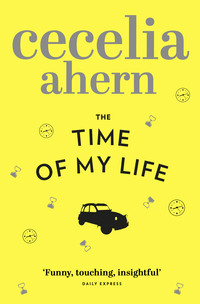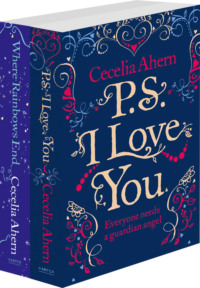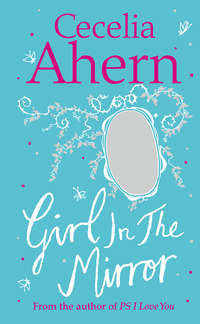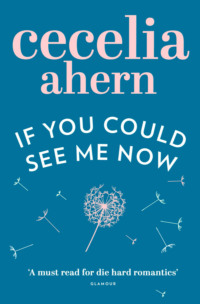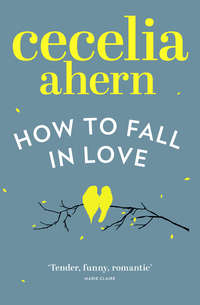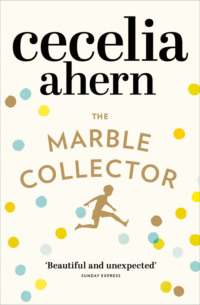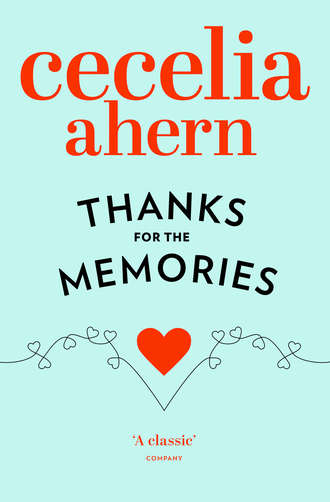
Полная версия
Thanks for the Memories
‘Sir, can you—’
‘No.’ But he slows slightly. ‘We examine how architecture through the centuries has been shaped by society, how it continues to be shaped, but also how it, in turn, shapes society.’
He pauses, looking around at the youthful faces staring up at him, their minds empty vessels waiting to be filled. So much to learn, so little time to do it in, such little passion within them to understand it truly. It is his job to give them passion. To share with them his experiences of travel, his knowledge of all the great masterpieces of centuries ago. He will transport them from the stuffy lecture theatre of the prestigious Dublin college to the rooms of the Louvre Museum, hear the echoes of their footsteps as he walks them through the Cathedral of St-Denis, to St-Germain-des-Prés and St-Pierre de Montmartre. They’ll know not only dates and statistics but the smell of Picasso’s paints, the feel of baroque marble, the sound of the bells of Notre-Dame Cathedral. They’ll experience it all, right here in this classroom. He will bring it all to them.
They’re staring at you, Justin. Say something.
He clears his throat. ‘This course will teach you how to analyse works of art and how to understand their historical significance. It will enable you to develop an awareness of the environment while also providing you with a deeper sensitivity to the culture and ideals of other nations. You will cover a broad range: history of painting, sculpture and architecture from Ancient Greece to modern times; early Irish art; the painters of the Italian Renaissance; the great Gothic cathedrals of Europe; the architectural splendours of the Georgian era and the artistic achievements of the twentieth century.’
He allows a silence to fall.
Are they filled with regret on hearing what lay ahead of them for the next four years of their lives? Or do their hearts beat wildly with excitement as his does, just thinking about all that is to come? Even after all these years, he still feels the same enthusiasm for the buildings, paintings and sculptures of the world. His exhilaration often leaves him breathless during lectures; he has to remember to slow down, not to tell them everything at once. Though he wants them to know everything, right now!
He looks again at their faces and has an epiphany.
You have them! They’re hanging on your every word, just waiting to hear more. You’ve done it, they’re in your grasp!
Someone farts and the room explodes with laughter.
He sighs, his bubble burst, and continues his talk in a bored tone. ‘My name is Justin Hitchcock and in my special guest lectures scattered throughout the course, you will study the introduction to European painting such as the Italian Renaissance and French Impressionism. This includes the critical analysis of paintings, the importance of iconography and the various technical methods used by artists from the Book of Kells to modern day. There’ll also be an introduction to European architecture. Greek temples to the present day, blah blah blah. Two volunteers to help me hand these out, please.’
And so it was another year. He wasn’t at home in Chicago now; he had chased his ex-wife and daughter to live in London and was flying back and forth between there and Dublin for his guest lectures. A different country perhaps but another class of the same. First week and giddy. Another group displaying an immature lack of understanding of his passions; a deliberate turning of their backs on the possibility – no, not the possibility, the surety – of learning something wonderful and great.
It doesn’t matter what you say now, pal, from here on in the only thing they’ll go home remembering is the fart.
THREE
‘What is it about fart jokes, Bea?’
‘Oh, hi, Dad.’
‘What kind of a greeting is that?’
‘Oh, gee whizz, wow, Dad, so great to hear from you. It’s been, what, ah shucks, three hours since you last phoned?’
‘Fine, you don’t have to go all porky pig on me. Is your darling mother home yet from a day out at her new life?’
‘Yes, she’s home.’
‘And has she brought the delightful Laurence back with her?’ He can’t hold back his sarcasm, which he hates himself for but, unwilling to withdraw it and incapable of apologising, he does what he always does, which is to run with it, therefore making it worse. ‘Laurence,’ he drawls, ‘Laurence of A—inguinal hernia.’
‘Oh, you’re such a geek. Would you ever give up talking about his trouser leg,’ she sighs with boredom.
Justin kicks off the scratchy blanket of the cheap Dublin hotel he’s staying in. ‘Really, Bea, check it next time he’s around. Those trousers are far too tight for what he’s got going on down there. There should be a name for that. Something-itis.’
Balls-a-titis.
‘There are only four TV channels in this dump, one in a language I don’t even understand. It sounds like they’re clearing their throats after one of your mother’s terrible coq-au-vins. You know, in my wonderful home back in Chicago, I had over two hundred channels.’ Dick-a-titis. Dickhead-a-titis. Ha!
‘Of which none you watched.’
‘But one had a choice not to watch those deplorable house-fixer-upper channels and music channels of naked women dancing around.’
‘I appreciate one going through such an upheaval, Dad. It must be very traumatic for you, a sort-of grown man, while I, at sixteen years old, had to take this huge life adjustment of parents getting divorced and a move from Chicago to London all in my stride.’
‘You got two houses and extra presents, what do you care?’ he grumbles. ‘And it was your idea.’
‘It was my idea to go to ballet school in London, not for your marriage to end!’
‘Oh, ballet school. I thought you said, “Break up, you fool.” My mistake. Think we should move back to Chicago and get back together?’
‘Nah.’ He hears the smile in her voice and knows it’s OK.
‘Hey, you think I was going to stay in Chicago while you’re all the way over this side of the world?’
‘You’re not even in the same country right now,’ she laughs.
‘Ireland is just a work trip. I’ll be back in London in a few days. Honestly, Bea, there’s nowhere else I’d rather be,’ he assures her.
Though a Four Seasons would be nice.
‘I’m thinking of moving in with Peter,’ she says far too casually.
‘So what is it about fart jokes?’ he asks again, ignoring her. ‘I mean what is it about the sound of expelling air that can stop people from being interested in some of the most incredible masterpieces ever created?’
‘I take it you don’t want to talk about me moving in with Peter?’
‘You’re a child. You and Peter can move into the wendy house, which I still have in storage. I’ll set it up in the living room. It’ll be real nice and cosy.’
‘I’m eighteen. Not a child any more. I’ve lived alone away from home for two years now.’
‘One year alone. Your mother left me alone the second year to join you, remember.’
‘You and Mum met at my age.’
‘And we did not live happily ever after. Stop imitating us and write your own fairy tale.’
‘I would, if my overprotective father would stop butting in with his version of how the story should go.’ Bea sighs and steers the conversation back to safer territory. ‘Why are your students laughing at fart jokes, anyway? I thought your seminar was a one-off for postgrads who’d elected to choose your boring subject. Though why anybody would do that, is beyond me. You lecturing me on Peter is boring enough and I love him.’
Love! Ignore it and she’ll forget what she said.
‘It wouldn’t be beyond you, if you’d listen to me when I talk. Along with my postgraduate classes, I was asked to speak to first-year students throughout the year too, an agreement I may live to regret, but no matter. On to my day job and far more pressing matters, I’m planning an exhibition at the Gallery on Dutch painting in the seventeenth century. You should come see it.’
‘No, thanks.’
‘Well, maybe my postgrads over the next few months will be more appreciative of my expertise.’
‘You know, your students may have laughed at the fart joke but I bet at least a quarter of them donated blood.’
‘They only did it because they heard they’d get a free KitKat afterward,’ Justin huffs, rooting through the insufficiently filled mini-bar. ‘You’re angry at me for not giving blood?’
‘I think you’re an asshole for standing up that woman.’
‘Don’t use the word “asshole”, Bea. Anyway, who told you that I stood her up?’
‘Uncle Al.’
‘Uncle Al is an asshole. And you know what else, honey? You know what the good doctor said today about donating blood?’ He struggles with opening the film on the top of a Pringles box.
‘What?’ Bea yawns.
‘That the donation is anonymous to the recipient. Hear that? Anonymous. So what’s the point in saving someone’s life if they don’t even know you’re the one who saved them?’
‘Dad!’
‘What? Come on, Bea. Lie to me and tell me you wouldn’t want a bouquet of flowers for saving someone’s life?’
Bea protests but he continues.
‘Or a little basket of those, whaddaya call ’em muffins that you like, coconut—’
‘Cinnamon,’ she laughs, finally giving in.
‘A little basket of cinnamon muffins outside your front door with a little note tucked into the basket saying, “Thanks, Bea, for saving my life. Anytime you want anything done, like your dry cleaning picked up, or your newspaper and a coffee delivered to your front door every morning, a chauffeur-driven car for your own personal use, front-row tickets to the opera …” Oh the list could go on and on.’
He gives up pulling at the film and instead picks up a corkscrew and stabs the top. ‘It could be like one of those Chinese things; you know the way someone saves your life and then you’re forever indebted to them. It could be nice having someone tailing you everyday; catching pianos flying out of windows and stopping them from landing on your head, that kind of thing.’
Bea calms herself. ‘I hope you’re joking.’
‘Yeah, of course I’m joking.’ Justin makes a face. ‘The piano would surely kill them and that would be unfair.’
He finally pulls open the Pringles lid and throws the corkscrew across the room. It hits a glass on top of the minibar and it smashes.
‘What was that?’
‘House-cleaning,’ he lies. ‘You think I’m selfish, don’t you?’
‘Dad, you uprooted your life, left a great job, nice apartment and flew thousands of miles to another country just to be near me, of course I don’t think you’re selfish.’
Justin smiles and pops a Pringle into his mouth.
‘But if you’re not joking about the muffin basket, then you’re definitely selfish. And if it was Blood For Life Week in my college, I would have taken part. But you have the opportunity to make it up to that woman.’
‘I just feel like I’m being bullied into this entire thing. I was going to get my hair cut tomorrow, not have people stab at my veins.’
‘Don’t give blood if you don’t want to, I don’t care. But remember, if you do it, a tiny little needle isn’t gonna kill you. In fact, the opposite may happen, it might save someone’s life and you never know, that person could follow you around for the rest of your life leaving muffin baskets outside your door and catching pianos before they fall on your head. Now wouldn’t that be nice?’
FOUR
In a blood drive beside Trinity College’s rugby pitch, Justin tries to hide his shaking hands from Sarah, while handing over his consent form and ‘Health and Lifestyle’ questionnaire, which frankly discloses far more about him than he’d reveal on a date. She smiles encouragingly and talks him through everything as though giving blood is the most normal thing in the world.
‘Now I just need to ask you a few questions. Have you read, understood and completed the health and lifestyle questionnaire?’
Justin nods, words failing him in his clogged throat.
‘And is all the information you’ve provided true and accurate to the best of your knowledge?’
‘Why?’ he croaks. ‘Does it not look right to you? Because if it doesn’t I can always leave and come back again another time.’
She smiles at him with the same look his mother wore before tucking him into bed and turning off the light.
‘OK, we’re all set. I’m just going to do a haemoglobin test,’ she explains.
‘Does that check for diseases?’ He looks around nervously at the equipment in the van. Please don’t let me have any diseases. That would be too embarrassing. Not likely anyway. Can you even remember the last time you had sex?
‘No, this just measures the iron in your blood.’ She takes a pinprick of blood from the pad of his finger. ‘Blood is tested later for diseases and STDs.’
‘Must be handy for checking up on boyfriends,’ he jokes, feeling sweat tickle his upper lip. He studies his finger.
She quietens as she carries out the quick test.
Justin lies supine on a cushioned bench and extends his left arm. Sarah wraps a pressure cuff around his upper arm, making the veins more prominent, and she disinfects his inner elbow.
Don’t look at the needle, don’t look at the needle.
He looks at the needle and the ground swirls beneath him. His throat tightens.
‘Is this going to hurt?’ Justin swallows hard as his shirt clings to his saturated back.
‘Just a little sting,’ she smiles, approaching him with a cannula in her hand.
He smells her sweet perfume and it distracts him momentarily. As she leans over, he sees down her V-neck sweater. A black lace bra.
‘I want you to take this in your hand and squeeze it repeatedly.’
‘What?’ he laughs nervously.
‘The ball,’ she smiles.
‘Oh.’ He takes a small soft ball into his hand. ‘What does this do?’ His voice shakes.
‘It’s to help speed up the process.’
He pumps at top speed.
Sarah laughs. ‘Not yet. And not that fast, Justin.’
Sweat rolls down his back. His hair sticks to his sticky forehead. You should have gone for the haircut, Justin. What kind of a stupid idea was this—‘Ouch.’
‘That wasn’t so bad, was it?’ she says softly, as though talking to a child.
Justin’s heart beats loudly in his ears. He pumps the ball in his hand to the rhythm of his heartbeat. He imagines his heart pumping the blood, the blood flowing through his veins. He sees it reach the needle, go through the tube and he waits to feel faint. But the dizziness never comes and so he watches his blood run through the tube and down under the bed into the collection bag she has thoughtfully hidden below the bed on a scale.
‘Do I get a KitKat after this?’
She laughs. ‘Of course.’
‘And then we get to go for drinks or are you just using me for my body?’
‘Drinks are fine, but I must warn you against doing anything strenuous today. Your body needs to recover.’
He catches sight of her lace bra again. Yeah, sure.
Fifteen minutes later, Justin looks at his pint of blood with pride. He doesn’t want it to go to some stranger, he almost wants to bring it to the hospital himself, survey the wards and present it to someone he really cares about, someone special, for it’s the first thing to come straight from his heart in a very long time.
FIVE
I open my eyes slowly.
White light fills them. Slowly, objects come into focus and the white light fades. Orangey pink now. I move my eyes around. I’m in a hospital. A television high up on the wall. Green fills its screen. I focus more. Horses. Jumping and racing. Dad must be in the room. I lower my eyes and there he is with his back to me in an armchair. He thumps his fists lightly on the chair’s arms, I see his tweed cap appearing and disappearing behind the back of the chair as he bounces up and down. The springs beneath him squeak.
The horse racing is silent. So is he. Like a silent movie being carried out before me, I watch him. I wonder if it’s my ears that aren’t allowing me to hear him. He springs out of his chair now faster than I’ve seen him move in a long time, and he raises his fist at the television, quietly urging his horse on.
The television goes black. His two fists open and he raises his hands up in the air, looks up to the ceiling and beseeches God. He puts his hands in his pockets, feels around and pulls the material out. They’re empty and the pockets of his brown trousers hang inside out for all to see. He pats down his chest, feeling for money. Checks the small pocket of his brown cardigan. Grumbles. So it’s not my ears.
He turns to feel around in his overcoat beside me and I shut my eyes quickly.
I’m not ready yet. Nothing has happened to me until they tell me. Last night will remain a nightmare in my mind until they tell me it was true. The longer I close my eyes, the longer everything remains as it was. The bliss of ignorance.
I hear him rooting around in his overcoat, I hear change rattling and I hear the clunk as the coins fall into the television. I risk opening my eyes again and there he is back in his armchair, cap bouncing up and down, pounding his fists against the air.
My curtain is closed to my right but I can tell I share a room with others. I don’t know how many. It’s quiet. There’s no air in the room; it’s stuffy with stale sweat. The giant windows that take up the entire wall to my left are closed. The light is so bright I can’t see out. I allow my eyes to adjust and finally I see. A bus stop across the road. A woman waits by the stop, shopping bags by her feet and on her hip sits a baby, bare chubby legs bouncing in the Indian summer sun. I look away immediately. Dad is watching me. He is leaning out over the side of the armchair, twisting his head around, like a child from his cot.
‘Hi, love.’
‘Hi.’ I feel I haven’t spoken for such a long time, and I expect to croak. But I don’t. My voice is pure, pours out like honey. Like nothing’s happened. But nothing has happened. Not yet. Not until they tell me.
With both hands on the arms of the chair he slowly pulls himself up. Like a seesaw, he makes his way over to the side of the bed. Up and down, down and up. He was born with a leg length discrepancy, his left leg longer than his right. Despite the special shoes he was given in later years, he still sways, the motion instilled in him since he learned to walk. He hates wearing those shoes and, despite our warnings and his back pains, he goes back to what he knows. I’m so used to the sight of his body going up and down, down and up. I recall as a child holding his hand and going for walks. How my arm would move in perfect rhythm with him. Being pulled up as he stepped down on his right leg, being pushed down as he stepped on his left.
He was always so strong. Always so capable. Always fixing things. Lifting things, mending things. Always with a screwdriver in his hand, taking things apart and putting them back together – remote controls, radios, alarm clocks, plugs. A handiman for the entire street. His legs were uneven, but his hands, always and for ever, steady as a rock.
He takes his cap off as he nears me, clutches it with both hands, moves it around in circles like a steering wheel as he watches me with concern. He steps onto his right leg and down he goes. Bends his left leg. His position of rest.
‘Are you … em … they told me that … eh.’ He clears his throat. ‘They told me to …’ He swallows hard and his thick messy eyebrows furrow and hide his glassy eyes. ‘You lost … you lost, em …’
My lower lip trembles.
His voice breaks when he speaks again. ‘You lost a lot of blood, Joyce. They …’ He lets go of his cap with one hand and makes circular motions with his crooked finger, trying to remember. ‘They did a transfusion of the blood thingy on you so you’re em … you’re OK with your bloods now.’
My lower lip still trembles and my hands automatically go to my belly, not long enough gone to even show swelling under the blankets. I look to him hopefully, only realising now how much I am still holding on, how much I have convinced myself the awful incident in the labour room was all a terrible nightmare. Perhaps I imagined my baby’s silence that filled the room in that final moment. Perhaps there were cries that I just didn’t hear. Of course it’s possible – by that stage I had little energy and was fading away – maybe I just didn’t hear the first little miraculous breath of life that everybody else witnessed.
Dad shakes his head sadly. No, it had been me that had made those screams instead.
My lip trembles more now, bounces up and down and I can’t stop it. My body shakes terribly and I can’t stop it either. The tears; they well, but I stop them from falling. If I start now I know I will never stop.
I’m making a noise. An unusual noise I’ve never heard before. Groaning. Grunting. A combination of both. Dad grabs my hand and holds it hard. The feel of his skin brings me back to last night, me lying at the end of the stairs. He doesn’t say anything. But what can a person say? I don’t even know.
I doze in and out. I wake and remember a conversation with a doctor and wonder if it was a dream. Lost your baby, Joyce, we did all we could … blood transfusion … Who needs to remember something like that? No one. Not me.
When I wake again the curtain beside me has been pulled open. There are three small children running around, chasing one another around the bed while their father, I assume, calls to them to stop in a language I don’t recognise. Their mother, I assume, lies in bed. She looks tired. We catch eyes and smile at one another.
I know how you feel, her sad smile says, I know how you feel.
What are we going to do? my smile says back to her.
I don’t know, her eyes say. I don’t know.
Will we be OK?
She turns her head away from me, her smile gone.
Dad calls over to them. ‘Where are you lot from then?’
‘Excuse me?’ her husband asks.
‘I said where are you lot from then?’ Dad repeats. ‘Not from around here, I see.’ Dad’s voice is cheery and pleasant. No insults intended. No insults ever intended.
‘We are from Nigeria,’ the man responds.
‘Nigeria,’ Dad replies. ‘Where would that be then?’
‘In Africa.’ The man’s tone is pleasant too. Just an old man starved of conversation, trying to be friendly, he realises.
‘Ah, Africa. Never been there myself. Is it hot there? I’d say it is. Hotter than here. Get a good tan, I’d say, not that you need it,’ he laughs. ‘Do you get cold here?’
‘Cold?’ the African smiles.
‘Yes, you know.’ Dad wraps his arms around his body and pretends to shiver. ‘Cold?’
‘Yes,’ the man laughs. ‘Sometimes I do.’
‘Thought so. I do too and I’m from here,’ Dad explains. ‘The chill gets right into my bones. But I’m not a great one for heat either. Skin goes red, just burns. My daughter, Joyce, goes brown. That’s her over there.’ He points at me and I close my eyes quickly.
‘A lovely daughter,’ the man says politely.
‘Ah, she is.’ Silence while I assume they watch me. ‘She was on one of those Spanish islands a few months back and came back black, she did. Well, not as black as you, you know, but she got a fair ol’ tan on her. Peeled, though. You probably don’t peel.’
The man laughs politely. That’s Dad. Never means any harm but has never left the country in his entire life. A fear of flying holds him back. Or so he says.
‘Anyway, I hope your lovely lady feels better soon. It’s an awful thing to be sick on your holliers.’
With that I open my eyes.
‘Ah, welcome back, love. I was just talking to these nice neighbours of ours.’ He seesaws up to me again, his cap in his hands. Rests on his right leg, goes down, bends his left leg. ‘You know I think we’re the only Irish people in this hospital. The nurse that was here a minute ago, she’s from Sing-a-song or someplace like that.’


